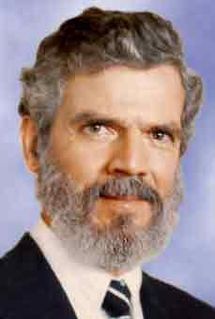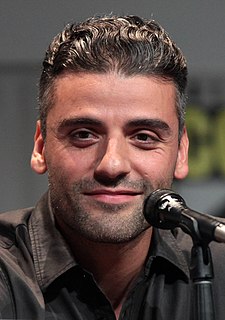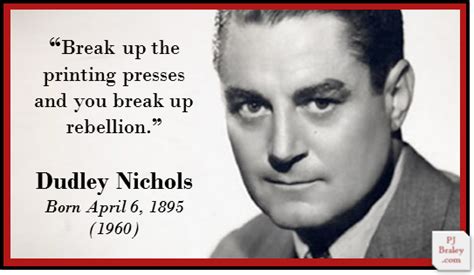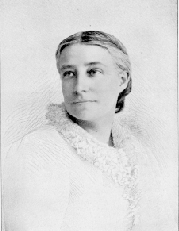Top 1200 Moral Values Quotes & Sayings - Page 18
Explore popular Moral Values quotes.
Last updated on April 18, 2025.
Economists are almost unanimous in conceding that the land tax has no adverse side effects. ...Landowners ought to look at both sides of the coin. Applying a tax to land values also means removing other taxes. This would so improve the efficiency of a city that land values would go up more than the increase in taxes on land.
Why does everyone take for granted that we don't learn to grow arms, but rather, are designed to grow arms? Similarly, we should conclude that in the case of the development of moral systems; there's a biological endowment which in effect requires us to develop a system of moral judgment and a theory of justice, if you like, that in fact has detailed applicability over an enormous range.
The national parklands have a major role in providing superlative opportunities for outdoor recreation, but they have other people serving values. They can provide an experience in conservation education for the young people of the country; they can enrich our literary and artistic consciousness; they can help create social values; contribute to our civic consciousness; remind us of our debt to the land of our fathers.
Here in Iowa, as a state senator, I have worked hard to find solutions that work for our state and as a result we've reduced taxes and lowered the unemployment rate. We have done that through hard work and sticking to our Iowa values. In the final months of this campaign I'll be asking voters to send me, and those Iowa values, to Washington, D.C.
I think Americas food culture is embedded in fast-food culture. And the real question that we have is: How are we going to teach slow-food values in a fast-food world? Of course, its very, very difficult to do, especially when children have grown up eating fast food and the values that go with that.
I am most comfortable in a "learner" role, I may raise my values-related concerns by asking the well-crafted and well-timed question, rather than by strenuously arguing a particular point of view. Or if I am a risk-taking, aggressive manager, I may frame the values conflict as just one more challenge that I want to take on, as opposed to a "constraint" on my action choices.
Moral theory develops from the divine command theory of medieval Christian philosophy, mixed up with a bit of ancient pagan virtue theory, to the purely secular moral sentiment and interpersonal reaction theories of Smith and Hume, to Kant's attempt to restore command theory but with something supersensible in the individual rather than God as the source of authority.
Let us never lose sight of the fact that education is a preparation for life - and that preparing for life is far more than knowing how to make a living or how to land on the moon. Preparing for life means building personal integrity, developing a sound sense of values, increasing the capacity and willingness to serve. Education must have its roots in moral principles. If we lose sight of that fact in our attempt to match our educational system against that of the materialists, we shall have lost far more than we could possibly gain.
I declare that this government is no longer a constitutional and moral form of government. I will deal with it, and I will obey its laws, and I will support it when it is defending our country from foreign and domestic enemies. I will vote in its elections and participate in its political debates. But I will never accept it. I aim at a restoration of constitutional and moral order.
We all want to live a happy life and have a right to do so, whether through work or spiritual practice. I'm subject to destructive emotions like anger and jealousy the same as you, but we all have potential for good too. However, our existing education system is oriented towards material development; neglecting inner values. Consequently we lack a clear awareness of the inner values that are the basis of a happy life.
Our knowledge and our ability to handle our problems progress through the open conflict of ideas, through the tests of phenomenological adequacy, inner consistency, and practical-moral consequences. Reason may err, but it can be moral. If we must err, let it be on the side of our creativity, our freedom, our betterment.
Whatever prestige the bourgeoisie may today be willing to grant to fragmentary or deliberately retrograde artistic tentatives, creation can now be nothing less than a synthesis aiming at the construction of entire atmospheres and styles of life. . . . A unitary urbanism — the synthesis we call for, incorporating arts and technologies — must be created in accordance with new values of life, values which we now need to distinguish and disseminate. . . .
Above all, do not give up your moral and political autonomy by accepting in somebody else's terms the illiberal practicality of the bureaucratic ethos or the liberal practicality of the moral scatter. Know that many personal troubles cannot be solved merely as troubles, but must be understood in terms of public issues and in terms of the problems of history making.
It should be apparent that the belief in objectivity in journalism, as in other professions, is not just a claim about what kind of knowledge is reliable. It is also a moral philosophy, a declaration of what kind of thinking one should engage in, in making moral decisions. It is, moreover, a political commitment, for it provides a guide to what groups one should acknowledge as relevant audiences for judging one's own thoughts and acts.
There is seemingly no biological benefit to acting with conscience; if there were, only moral individuals would survive and procreate. Sadly, we know that's not true. The benefit of conscience is that you won't suffer guilt (private) or shame (public), and that by your own self-imposed definition, you are a moral human, a special kind of animal who takes unique pride in elevating him/herself above the termites.
We have to remember that the United States has certain principles, certain values that bind us all together, that make us all American. And if we allow those values, those rights to be rescinded for one group of individuals, then we are essentially opening the door to having all of our rights, all of our privileges rescinded.
The phenomenon of economic ignorance is so widespread, and its consequences so frightening, that the objective of reducing that ignorance becomes a goal invested with independent moral worth. But the economic education needed to reduce such ignorance must be based on austere, objective, scientific content—with no ideological or moral content of its own.
Jesus of Nazareth could have chosen simply to express Himself in moral precepts; but like a great poet He chose the form of the parable, wonderful short stories that entertained and clothed the moral precept in an eternal form. It is not sufficient to catch man's mind, you must also catch the imaginative faculties of his mind.
We need to find secular ways to cultivate warm-heartedness. We need secular ways to educate ourselves about inner values. The source of a happy life is within us. Trouble makers in many parts of the world are often quite well educated, so it is not just education that we need. We need to pay attention to inner values.
I think America's food culture is embedded in fast-food culture. And the real question that we have is: How are we going to teach slow-food values in a fast-food world? Of course, it's very, very difficult to do, especially when children have grown up eating fast food and the values that go with that.
Now I realize it's fashionable in some circles to believe that no one in government should encourage others to read the Bible. That we're told we'll violate the constitutional separation of church and state established by the Founding Fathers and the First Amendment. The First Amendment was not written to protect people and their laws from religious values. It was written to protect those values from government tyranny.
In the spiritual domain, criticism is love turned sour. In a wholesome spiritual life there is no room for criticism. The critical faculty is an intellectual one, not a moral one. If criticism becomes a habit it will destroy the moral energy of the life and paralyse spiritual force. The only person who can criticise human beings is the Holy Spirit.
The social intuitionist model offers an explanation of why moral and political arguments are so frustrating: because moral reasons are the tail wagged by the intuitive dog. A dog’s tail wags to communicate. You can’t make a dog happy by forcibly wagging its tail. And you can’t change people’s minds by utterly refuting their arguments.
If we empower ourselves with responsibility over our actions, responsibility over our destinies and responsibility for directing and maintaining and creating our own ethical and moral frameworks, which is the most important thing really isn’t it because perhaps the greatest insult to humanism is this idea that mankind needs a god in order to have a moral framework.
Surely, if it is the right of the people to "alter or abolish," it is their right to criticize, even severely, policies they believe destructive of the ends for which government has been established. This principle, in the Declaration of Independence, suggests that true patriotism lies in supporting the values the country is supposed to cherish: equality, life, liberty, the pursuit of happiness. When our government compromises, undermines, or attacks those values, it is being unpatriotic.
Moral improvement (or perfecting) require an evolution leading to a higher consciousness, which is the true torch of life; it is what we have failed too much to appreciate, and that which would be fatal to fail to appreciate any longer ("pluslongtemps", Fr.); For if we do not take it upon ourselves to remedy in time to the moral colapse (or bankruptcy) that already threaten, the whole civilisation will risks to disappear.
Has Bill Clinton inspired idealism in the young, as he himself was inspired by John F. Kennedy? Or has he actually reduced their idealism? Surely part of the answer lies in Clinton's personal moral lapse with Monica Lewinsky. But more important was his sin of omission - his failure to embrace a moral cause beyond popularity.
What does this word holiness really mean? Is it a negative kind of piety from which so many people have shied away? No, of course not! Holiness in the Bible means moral wholeness-- a positive quality which actually includes kindness, mercy, purity, moral blamelessness and godliness. It is always to be thought of in a positive, white intensity of degree.
... life is moral responsibility. Life is several other things, we do not deny. It is beauty, it is joy, it is tragedy, it is comedy, it is psychical and physical pleasure, it is the interplay of a thousand rude or delicate motions and emotions, it is the grimmest and the merriest motley of phantasmagoria that could appeal to the gravest or the maddest brush ever put to palette; but it is steadily and sturdily and always moral responsibility.
Talking about morality can be offensive. Morality is a politically incorrect subject. Many people are genuinely offended if someone speaks of morality and family values. It is okay if you talk about your sexual fantasies and deviances. This is called "liberation". But you would be frowned at if you talk about morality in public. Then you'd be accused of trying to impose your values on others.
The Consequentialist trinity is typically regarded in this way: Bentham is crude, Mill's writings are full of howlers and inconsistencies, and Sidgwick was too smart to fully embrace Consequentialism. All of these great traditions in moral philosophy express strands of our moral consciousness and they should all be treated as research programs rather than as fully determinate views that can be leveled by a counterexample or by a clever argument.
First thing the developer has to do is to get an assessment of the threatened species, of the ecological values of that site. At the moment, that developer lodges an application, there's usually trade-offs, negotiations, you end up with remnant bits of land. You might end up with some other offset land that the public has to run. There's no cohesive system of then making sure that we maintain and improve biodiversity values.
I am among those who believe that our Western civilization is on its way to perishing. It has many commendable qualities, most of which it has borrowed from the Christian ethic, but it lacks the element of moral wisdom that would give it permanence. Future historians will record that we of the twentieth century had intelligence enough to create a great civilization but not the moral wisdom to preserve it.
COMMITMENT is the first step to every good thing I know, and the only step that matters when it comes to achievement. It inspires and attracts people, shows them you have conviction and goals, that you are focused and determined. And the commitment that is based on values will endure. Any time you make choices based on solid life values, you are in a better position to sustain your level of commitment, because you don't have to continually re-evaluate its importance.
Hence the sterile, uninspiring futility of a great many theoretical discussions of ethics, and the resentment which many people feel towards such discussions: moral principles remain in their minds as floating abstractions, offering them a goal they cannot grasp and demanding that they reshape their souls in its image, thus leaving them with a burden of undefinable moral guilt.
The fact that a belief has a good moral effect upon a man is no evidence whatsoever in favor of its truth. I'm not contending in a dogmatic way that there is not a God. What I'm contending is that we don't know that there is. I don't like the word "absolute." I don't think there is anything absolute whatever. The moral law, for example, is always changing. At one period in the development of the human race, almost everybody thought cannibalism was a duty.
Gratitude is not a spiritual or moral dessert which we may take or push away according to the whims of the moment, and in either case without material consequences. Gratitude is the very bread and meat of spiritual and moral health, individually and collectively. What was the seed of disintegration that corrupted the heart of the ancient world beyond the point of divine remedy...? What was it but ingratitude?
How much atonement is enough? The bombing must be allowed as at least part-payment: those of our young people who are concerned about the moral problem posed by the Allied air offensive should at least consider the moral problem that would have been posed if the German civilian population had not suffered at all.
Solidarity is a beautiful word because it means that you reach out to those who are different from you and who have to cope with different circumstances because we recognize that we all share the same human needs and same values. It is the values that count most of all. The value of freedom of thought, the value of democratic practices, the value of respect for your fellow human beings.
We have the - the longest, friendliest border, you know, for the - for the longest time in the history - in recorded history, really, with Canada. And they get to sit on their moral perch, you know, take the moral high ground, say, oh, United States, shame on you about Iraq. They make us look bad internationally. And it's really not fair.
Science is a magnificent force, but it is not a teacher of morals. It can perfect machinery, but it adds no moral restraints to protect society from the misuse of the machine. It can also build gigantic intellectual ships, but it constructs no moral rudders for the control of storm tossed human vessel. It not only fails to supply the spiritual element needed but some of its unproven hypotheses rob the ship of its compass and thus endangers its cargo.
To those who cite the first amendment as reason for excluding God from more and more of our institutions and everyday life, may I just say: The first amendment of the Constitution was not written to protect the people of this country from religious values; it was written to protect religious values from government tyranny.
Everyone has a spectrum of masculinity and femininity inside them. In every individual, a war of misogyny is raging. Every man is repressing and oppressing the femininity within themselves, raising up male values as governing values. Because that's what we've been taught to do, just as every woman has. Misogyny isn't just something that affects women. It affects men.
Prayer is often a temptation to bank on a miracle of God instead of on a moral issue, i.e., it is much easier to ask God to do my work than it is to do it myself. Until we are disciplined properly, we will always be inclined to bank on God's miracles and refuse to do the moral thing ourselves. It is our job, and it will never be done unless we do it.
Conscience is the most dangerous thing you possess. If you wake it up, it may destroy you. To live a life of total moral rigor is not necessarily the way to go. It's the path for very few people. Most people need to come up with some kind of middle ground that satisfies their practical, moral, and philosophical esthetic needs.
What the world needs today is a definite, spiritual mobilization of the nations who believe in God against this tide of Red agnosticism. It needs a moral mobilization against the hideous ideas of the police state and human slavery. I suggest that the United Nations should be reorganized without the Communist nations in it. It is a proposal based solely upon moral, spiritual and defense foundations. It is a proposal to redeem the concept of the United Nations to the high purpose for which it was created. It is a proposal for moral and spiritual cooperation of God-fearing free nations. And in rejecting an atheistic other world, I am confident that the Almighty God will be with us.
The bad things the U.S. health care system are that our financing of health care is really a moral morass in the sense that it signals to the doctors that human beings have different values depending on their income status. For example, in New Jersey, the Medicaid program pays a pediatrician $30 to see a poor child on Medicaid. But the same legislators, through their commercial insurance, pay the same pediatrician $100 to $120 to see their child. How do physicians react to it? If you phone around practices in Princeton, Plainsboro, Hamilton - none of them would see Medicaid kids.
Human life is precious, sublime and meaningful. But by involvement in purely worldly pursuits, the greatness of human birth is forgotten. Without human values, life is meaningless. When there is purity in thought, word and deed, human values are practised. The unity of the three H's is essential. 'Heart, Head and Hand. ' But today this unity is absent among people, with the result that men are becoming inhuman.
Many people have written about the economic meaning of globalization; in One World Peter Singer explains its moral meaning. His position is carefully developed, his tone is moderate, but his conclusions are radical and profound. No political theorist or moral philosopher, no public official or political activist, can afford to ignore his arguments.
Man has been called a rational being, but rationality is a matter of choice... Man has to be a man-by choice; he has to hold his life as a value-by choice; he has to learn to sustain it-by choice; he has to discover the values it requires and practice his virtues by choice. A code of values accepted by choice is a code of morality.
Every day we make our way through a moral forest, along pathways ever branching. Often we get lost. When the array of paths before us is so perplexing that we can't make a choice, or won't, we can hope that we will be given a sign to guide us. A reliance on signs, however, can lead to the evasion of all moral obligations, and thus earn a terrible judgment.




















































